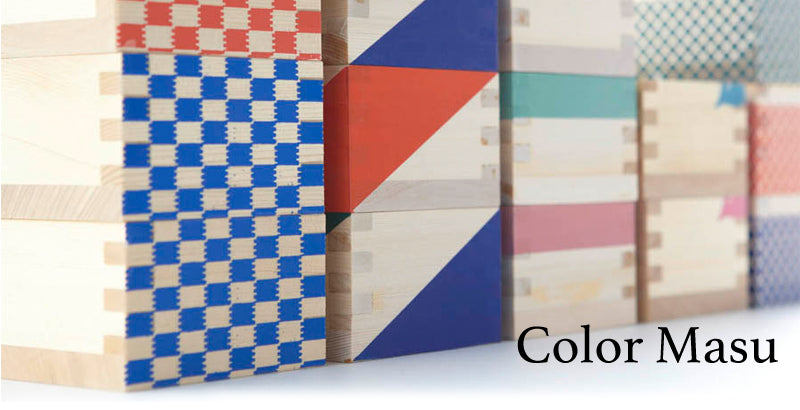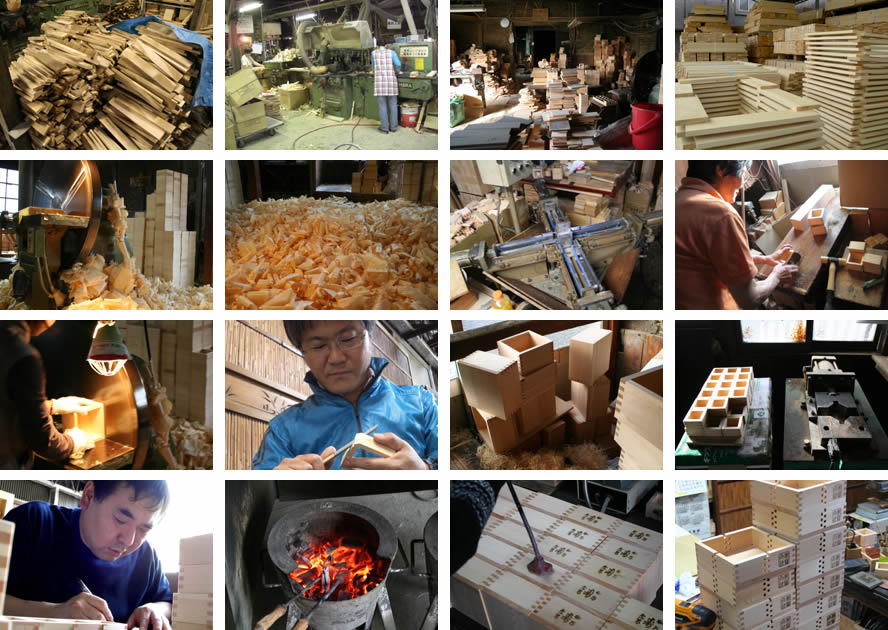Color Masu (Wooden Sake Cup)

This colorful set of Masu boxes are specially designed to add color to your everyday life. Use it as a sake vessel, a wooden case, or anything you please.
The Colorful Masu is available in five patterns, each one specially designed with a bit of Japanese influence.
The History of the Masu (Wooden Sake Cup)
For over 1300 years, the Masu has played an important role in Japanese tradition. Originally a measuring cup for foods such as rice and soy sauce, the Masu was used to measure rice when it was common as a form of currency. For the Japanese people, the Masu was as valuable and important as the rice it contained, and this tradition remains an essential part of the lives of people today.
More recently, the Masu has become widely acknowledged as a vessel for serving Sake, as well as a symbol of good luck. The term “Masu” translates to “growth” in Japanese, and is thus an icon of prosperity and great happiness. Masu is also used in sacred rituals, and holy offerings are often presented to the spirits in the Masu box. On the day before the official start of spring, it is customary for farmers to offer beans in a Masu box to pray for a rich harvest. Masu is unique because it is put together wedging together precisely cut pieces of wood and applying a very small amount of adhesives, without the use of any nails.
What Makes our Masu Special?
Japanese Cypress

Because of its use in exquisite architecture, the Japanese Cypress, better known as Hinoki, is regarded as a great luxury in Japan. Famous for its crisp fragrance as well as its versatility as building material, Hinoki is a favorite choice for hot spring baths. The Japanese Cypress has been the wood of choice for the construction of ancient works of architecture such as the Horyuji Temple, the oldest wooden structure known to date.
Relaxation Effects

The fresh fragrance of the Japanese Cypress has been scientifically proven to have a relaxing and refreshing effect. The scent particles also give this special wood an antibacterial quality, making it an ideal choice for use as kitchenware and bath items.
Environmentally Friendly

No trees are cut specifically for the purpose of making a Masu box. Masu boxes are made by effectively recycling wood that did not meet building material standards because of its shape or size.
Top Market Share in Japan

80% of all Masu boxes produced in Japan are made here in Ogaki city. Ogaki is a known producer of Japanese Cypress lumber, and the Masu industry has grown hand in hand with the Cypress trade. In its prime, about 2,000,000 Masu boxes were produced and distributed annually from Ogaki city alone.
The Makings of a Masu Box

